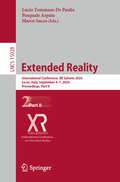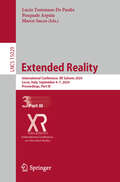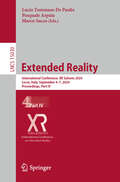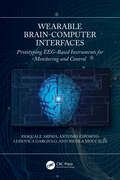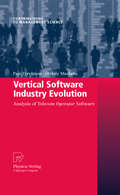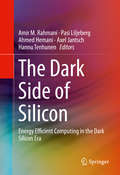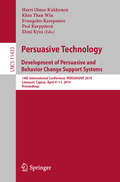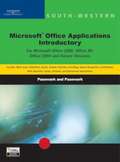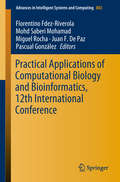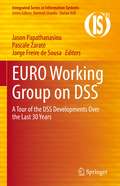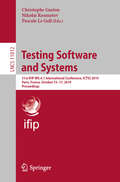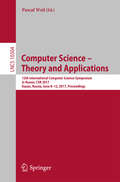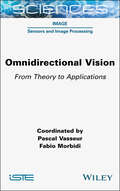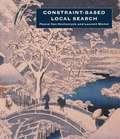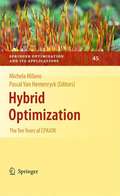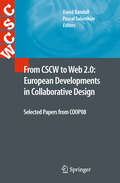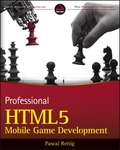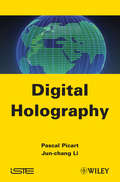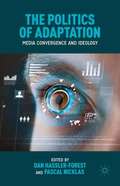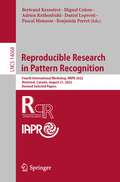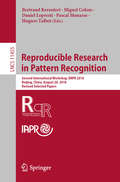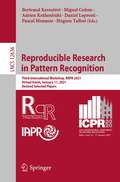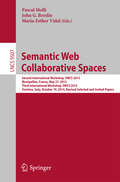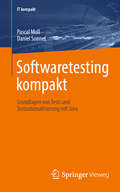- Table View
- List View
Extended Reality: International Conference, XR Salento 2024, Lecce, Italy, September 4–7, 2024, Proceedings, Part II (Lecture Notes in Computer Science #15028)
by Lucio Tommaso De Paolis Pasquale Arpaia Marco SaccoThe four-volume proceedings set LNCS 15027, 15028, 15029 and 15030 constitutes the refereed proceedings of the International Conference on Extended Reality, XR Salento 2024, held in Lecce, Italy during September 4–7, 2024. The 63 full papers and 50 short papers included in these proceedings were carefully reviewed and selected from 147 submissions. They were organized in the following topical sections: Extended Reality; Artificial Intelligence & Extended Reality; Extended Reality and Serious Games in Medicine; Extended Reality in Medicine and Rehabilitation; Extended Reality in Industry; Extended Reality in Cultural Heritage; Extended Reality Tools for Virtual Restauration; Extended Reality and Artificial Intelligence in Digital Humanities; Extended Reality in Learning; and Extended Reality, Sense of Presence and Education of Behaviour.
Extended Reality: International Conference, XR Salento 2024, Lecce, Italy, September 4–7, 2024, Proceedings, Part III (Lecture Notes in Computer Science #15029)
by Lucio Tommaso De Paolis Pasquale Arpaia Marco SaccoThe four-volume proceedings set LNCS 15027, 15028, 15029 and 15030 constitutes the refereed proceedings of the International Conference on Extended Reality, XR Salento 2024, held in Lecce, Italy during September 4–7, 2024. The 63 full papers and 50 short papers included in these proceedings were carefully reviewed and selected from 147 submissions. They were organized in the following topical sections: Extended Reality; Artificial Intelligence & Extended Reality; Extended Reality and Serious Games in Medicine; Extended Reality in Medicine and Rehabilitation; Extended Reality in Industry; Extended Reality in Cultural Heritage; Extended Reality Tools for Virtual Restauration; Extended Reality and Artificial Intelligence in Digital Humanities; Extended Reality in Learning; and Extended Reality, Sense of Presence and Education of Behaviour.
Extended Reality: International Conference, XR Salento 2024, Lecce, Italy, September 4–7, 2024, Proceedings, Part IV (Lecture Notes in Computer Science #15030)
by Lucio Tommaso De Paolis Pasquale Arpaia Marco SaccoThe four-volume proceedings set LNCS 15027, 15028, 15029 and 15030 constitutes the refereed proceedings of the International Conference on Extended Reality, XR Salento 2024, held in Lecce, Italy during September 4–7, 2024. The 63 full papers and 50 short papers included in these proceedings were carefully reviewed and selected from 147 submissions. They were organized in the following topical sections: Extended Reality; Artificial Intelligence & Extended Reality; Extended Reality and Serious Games in Medicine; Extended Reality in Medicine and Rehabilitation; Extended Reality in Industry; Extended Reality in Cultural Heritage; Extended Reality Tools for Virtual Restauration; Extended Reality and Artificial Intelligence in Digital Humanities; Extended Reality in Learning; and Extended Reality, Sense of Presence and Education of Behaviour.
Wearable Brain-Computer Interfaces: Prototyping EEG-Based Instruments for Monitoring and Control
by Antonio Esposito Pasquale Arpaia Nicola Moccaldi Ludovica GargiuloThis book presents a complete overview of the main EEG-based Brain-Computer Interface (BCI) paradigms and the related practical solutions for their design, prototyping, and testing. Readers will explore active, reactive, and passive BCI paradigms, with an emphasis on the operation for developing solutions, addressing the need for customization. Readers will familiarize themselves with the main steps for the realization of low-cost wearable BCIs which include: identification of the most suitable neuro signals for a specific application; definition of the hardware, firmware, and software, with a focus on wearable, non-invasive, and low-cost solutions; development of algorithms for data processing and classification; and, lastly, experimental campaigns for the validation of the prototyped solutions. BCI systems based on electroencephalography (EEG) are investigated and a complete overview of all BCI paradigms is offered. The aim of this book is to drive the reader, from the beginning to the end, along a research-and-development process of a working BCI prototype. This book is a guide for designers, biomedical engineers, students, biotechnologists, and those in the biomedical instrumentation field that would like to conceive, design, prototype, and test an innovative low-cost wearable EEG-based BCI.
Vertical Software Industry Evolution
by Pasi Tyrväinen Oleksiy MazhelisSeldom has any business been in such turmoil as the Communication Service Providers (CSP) business is today. Telecom operators providing communication services constructed the infrastructure of the global information society with their trillion investments on various telecommunication technologies from broadband to mobile. Their investments on software turned their technology-specific in-house procedures into modern layered OSS/BSS. This book analyzes the status and the future evolution of OSS/BSS software industry from multiple viewpoints including technology diffusion, vertical disintegration and evolution of a vertical software industry. The analysis uses both commercial databases on software market transactions and interviews of operators in Europe and Far East, using quantitative and qualitative methods. This research complying academic standards aims at serving the practical business needs in the companies shaping the future of communications: the CSPs and the software developers - sometimes found in a single enterprise.
The Dark Side of Silicon
by Axel Jantsch Amir M. Rahmani Pasi Liljeberg Ahmed Hemani Hannu TenhunenThis book presents the state-of-the art of one of the main concerns with microprocessors today, a phenomenon known as "dark silicon". Readers will learn how power constraints (both leakage and dynamic power) limit the extent to which large portions of a chip can be powered up at a given time, i. e. how much actual performance and functionality the microprocessor can provide. The authors describe their research toward the future of microprocessor development in the dark silicon era, covering a variety of important aspects of dark silicon-aware architectures including design, management, reliability, and test. Readers will benefit from specific recommendations for mitigating the dark silicon phenomenon, including energy-efficient, dedicated solutions and technologies to maximize the utilization and reliability of microprocessors.
Persuasive Technology: 14th International Conference, PERSUASIVE 2019, Limassol, Cyprus, April 9–11, 2019, Proceedings (Lecture Notes in Computer Science #11433)
by Harri Oinas-Kukkonen Evangelos Karapanos Khin Than Win Pasi Karppinen Eleni KyzaThis book constitutes the refereed proceedings of the 14th International Conference on Persuasive Technology, PERSUASIVE 2019, held in Limassol, Cyprus, in April 2019. The 29 full papers presented were carefully reviewed and selected from 79 submissions. The papers demonstrate how persuasive technologies can help solve societal issues. They were subsequently grouped in the following topical sections: Terminologies and methodologies; self-monitoring and reflection; systems development process; drones and automotives; ethical and legal aspects; special application domains; motivation and goal setting; personality, age and gender; social support; user types and tailoring.
Microsoft Office Applications: Introductory
by PasewarkOur Microsoft Office Applications books provide a wide variety of applications, projects, and simulations that will appeal to students with different computer skills and personal interests. When the Introductory and Advanced books are used together, students will learn all of the necessary skills to become Microsoft Office Specialist certified at the core level for Word, Excel, Access, and PowerPoint. Instructions and activities are generic and work for Microsoft Office XP, Office 2000, and Office 2003.
Practical Applications of Computational Biology and Bioinformatics, 12th International Conference (Advances In Intelligent Systems and Computing #803)
by Florentino Fdez-Riverola Juan F. De Paz Mohd Saberi Mohamad Miguel Rocha Pascual GonzálezThis book introduces the latest international research in the fields of bioinformatics and computational biology. It includes various studies in the area of machine learning in bioinformatics, systems biology, omics data analysis and mining, biomedical applications and sequences, which were selected by an international committee and presented at the 12th International Conference on Practical Applications of Computational Biology & Bioinformatics held in Toledo in June 2018.
EURO Working Group on DSS: A Tour of the DSS Developments Over the Last 30 Years (Integrated Series in Information Systems)
by Pascale Zaraté Jason Papathanasiou Jorge Freire de SousaThis book recapitulates the major developments in Decision Support Systems (DSS) over the last 30 years in order to evaluate the research areas of decision making and in which direction the field should proceed. As it attempts to find a consensus about the next steps for the future of DSS research, the book also enforces the trends and new technologies currently in use. The book examines topics such as decision analysis for enterprise systems and non-hierarchical networks, integrated solutions for decision support and knowledge management in distributed environments, decision support system evaluation and analysis through social networks, and e-learning and its application to real environments. It clearly presents the evidence to support their cases and attempts to promote an extensive and objective discussion. In addition, the book also reflects on approaches to dead-end ideas and failures in DSS to better understand the lessons learned. The contributions for this book have been written by thought leaders and influential researchers from the EURO Working Group of Decision Support Systems (EWG-DSS).
Testing Software and Systems: 31st IFIP WG 6.1 International Conference, ICTSS 2019, Paris, France, October 15–17, 2019, Proceedings (Lecture Notes in Computer Science #11812)
by Nikolai Kosmatov Christophe Gaston Pascale Le GallThis book constitutes the refereed proceedings of the 31st IFIP WG 6.1 International Conference on Testing Software and Systems, ICTSS 2019, held in Paris, France, in October 2019. The 14 regular papers and 3 short papers presented were carefully reviewed and selected from 30 submissions. This year also included an additional industrial paper. ICTSS is a series of international conferences addressing the conceptual, theoretic, and practical problems of testing software systems, including communication protocols, services, distributed platforms, middleware, embedded and cyber-physical systems, and security infrastructures.
Computer Science – Theory and Applications: 12th International Computer Science Symposium in Russia, CSR 2017, Kazan, Russia, June 8-12, 2017, Proceedings (Lecture Notes in Computer Science #10304)
by Pascal WeilThis book constitutes the proceedings of the 12th International Computer Science Symposium in Russia, CSR 2017, held in Kazan, Russia, in June 2017. The 22 full papers presented in this volume were carefully reviewed and selected from 44 submissions. In addition the book contains 6 invited lectures. The scope of the proposed topics is quite broad and covers a wide range of areas such as: include, but are not limited to: algorithms and data structures; combinatorial optimization; constraint solving; computational complexity; cryptography; combinatorics in computer science; formal languages and automata; algorithms for concurrent and distributed systems, networks; applications of logic to computer science, e.g. proof theory, model checking and verification; formal and algorithmic aspects of bio-informatics; current challenges such as quantum computing.
Omnidirectional Vision: From Theory to Applications
by Pascal Vasseur Fabio MorbidiOmnidirectional cameras, vision sensors that can capture 360° images, have in recent years had growing success in computer vision, robotics and the entertainment industry. In fact, modern omnidirectional cameras are compact, lightweight and inexpensive, and are thus being integrated in an increasing number of robotic platforms and consumer devices. However, the special format of output data requires tools that are appropriate for camera calibration, signal analysis and image interpretation. This book is divided into six chapters written by world-renowned scholars. In a rigorous yet accessible way, the mathematical foundation of omnidirectional vision is presented, from image geometry and camera calibration to image processing for central and non-central panoramic systems. Special emphasis is given to fisheye cameras and catadioptric systems, which combine mirrors with lenses. The main applications of omnidirectional vision, including 3D scene reconstruction and robot localization and navigation, are also surveyed. Finally, the recent trend towards AI-infused methods (deep learning architectures) and other emerging research directions are discussed.
Constraint-based Local Search
by Pascal Van Hentenryck Laurent MichelThe ubiquity of combinatorial optimization problems in our society is illustrated by the novel application areas for optimization technology, which range from supply chain management to sports tournament scheduling. Over the last two decades, constraint programming has emerged as a fundamental methodology to solve a variety of combinatorial problems, and rich constraint programming languages have been developed for expressing and combining constraints and specifying search procedures at a high level of abstraction. Local search approaches to combinatorial optimization are able to isolate optimal or near-optimal solutions within reasonable time constraints.This book introduces a method for solving combinatorial optimization problems that combines constraint programming and local search, using constraints to describe and control local search, and a programming language, COMET, that supports both modeling and search abstractions in the spirit of constraint programming.After an overview of local search including neighborhoods, heuristics, and metaheuristics, the book presents the architecture and modeling and search components of constraint-based local search and describes how constraint-based local search is supported in COMET. The book describes a variety of applications, arranged by meta-heuristics. It presents scheduling applications, along with the background necessary to understand these challenging problems. The book also includes a number of satisfiability problems, illustrating the ability of constraint-based local search approaches to cope with both satisfiability and optimization problems in a uniform fashion.
Hybrid Optimization: The Ten Years of CPAIOR (Springer Optimization and Its Applications #45)
by Pascal Van Hentenryck Michela MilanoHybrid Optimization focuses on the application of artificial intelligence and operations research techniques to constraint programming for solving combinatorial optimization problems. This book covers the most relevant topics investigated in the last ten years by leading experts in the field, and speculates about future directions for research. This book includes contributions by experts from different but related areas of research including constraint programming, decision theory, operations research, SAT, artificial intelligence, as well as others. These diverse perspectives are actively combined and contrasted in order to evaluate their relative advantages. This volume presents techniques for hybrid modeling, integrated solving strategies including global constraints, decomposition techniques, use of relaxations, and search strategies including tree search local search and metaheuristics. Various applications of the techniques presented as well as supplementary computational tools are also discussed.
From CSCW to Web 2.0: European Developments in Collaborative Design
by David Randall Pascal SalembierMany challenges were identified in CSCW some thirty years ago, and some of these remain problematic today. However they are being progressively transformed and this edited volume contains contributions that demonstrate how these new challenges are being dealt with in a variety of ways, reflecting the balance of rigour and creativity that has always characterised the field. Originally presented at COOP '08 which took place in Carry-le-Rouet, France in 2008, the contributions to this volume have been substantially extended and revised. New technologies, new domains and new methods are described for supporting design and evaluation. Taking a progressive and critical stance, the authors cover a variety of themes including inter-organisational working, non task-based environments, creativity, and the development of Web 2.0 (and even Web 3.0) applications, including new cooperative mechanisms and new classification possibilities.
Professional HTML5 Mobile Game Development
by Pascal RettigCreate mobile game apps for the lucrative gaming market If you're an experienced developer seeking to break into the sizzling mobile game market, this is the book for you. Covering all mobile and touchscreen devices, including iPhones, iPads, Android, and WP7. 5, this book takes you through the steps of building both single- and multi-player mobile games. Topics include standard patterns for building games in HTML5, what methods to choose for building (CSS3, SVG, or Canvas), popular game engines and frameworks, and much more. Best of all, code for six basic games is provided, so you can modify, further develop, and make it your own. Shows intermediate developers how to develop games in HTML5 and build games for iPhone, iPad, Android, and WP7. 5 mobile and touchscreen devices Explains single-player and multi-player mobile game development Provides code for six basic games in a GitHub repository, so readers can collaborate and develop the code themselves Explores specific APIs to make games even more compelling, including geolocation, audio, and device orientation Reviews three popular open-source HTML5 game engines--crafty. js, easel. js, and enchant. js Covers simple physics as well as using an existing physics library The world is going mobile, as is the game industry. Professional HTML5 Mobile Game Development helps savvy developers join in this exploding market.
Digital Holography (Wiley-iste Ser.)
by Pascal Picart Jun-chang LiThis book presents a substantial description of the principles and applications of digital holography.The first part of the book deals with mathematical basics and the linear filtering theory necessary to approach the topic. The next part describes the fundamentals of diffraction theory and exhaustively details the numerical computation of diffracted fields using FFT algorithms. A thorough presentation of the principles of holography and digital holography, including digital color holography, is proposed in the third part.A special section is devoted to the algorithms and methods for the numerical reconstruction of holograms. There is also a chapter devoted to digital holographic interferometry with applications in holographic microscopy, quantitative phase contrast imaging, multidimensional deformation investigations, surface shape measurements, fluid mechanics, refractive index investigations, synthetic aperture imaging and information encrypting.Keys so as to understand the differences between digital holography and speckle interferometry and examples of software for hologram reconstructions are also treated in brief. Contents 1. Mathematical Prerequisites.2. The Scalar Theory of Diffraction.3. Calculating Diffraction by Fast Fourier Transform.4. Fundamentals of Holography.5. Digital Off-Axis Fresnel Holography.6. Reconstructing Wavefronts Propagated through an Optical System.7. Digital Holographic Interferometry and Its Applications.Appendix. Examples of Digital Hologram Reconstruction Programs
Audiovisual Speech Processing
by Gérard Bailly Pascal Perrier Eric Vatikiotis-BatesonWhen we speak, we configure the vocal tract which shapes the visible motions of the face and the patterning of the audible speech acoustics. Similarly, we use these visible and audible behaviors to perceive speech. This book showcases a broad range of research investigating how these two types of signals are used in spoken communication, how they interact, and how they can be used to enhance the realistic synthesis and recognition of audible and visible speech. The volume begins by addressing two important questions about human audiovisual performance: how auditory and visual signals combine to access the mental lexicon and where in the brain this and related processes take place. It then turns to the production and perception of multimodal speech and how structures are coordinated within and across the two modalities. Finally, the book presents overviews and recent developments in machine-based speech recognition and synthesis of AV speech.
The Politics of Adaptation
by Dan Hassler-Forest Pascal NicklasIn the 21st century, the parallel movements of media convergence and globalization have reshaped our understanding of media boundaries. The rise of digital culture has increased our access to narrative media, while also providing new ways of engaging with them. But, at the same time, global media corporations have intensified their power over these media and the channels through which they reach us. This book brings together a broad range of scholarly approaches to the challenges and opportunities of adaptation studies in this new era. Together, they focus on the political and ideological tensions that underlie and shape processes of adaptation and cultural transformation in the age of media convergence.
Reproducible Research in Pattern Recognition: Fourth International Workshop, RRPR 2022, Montreal, Canada, August 21, 2022, Revised Selected Papers (Lecture Notes in Computer Science #14068)
by Bertrand Kerautret Miguel Colom Pascal Monasse Daniel Lopresti Benjamin Perret Adrien KrähenbühlThis book constitutes the thoroughly refereed post-workshop proceedings of the 4th International Workshop on Reproducible Research in Pattern Recognition, RRPR 2022, held in Montreal, Canada, in August 2022. The 5 revised full papers presented together with 4 short papers, were carefully reviewed and selected from 9 submissions. The papers were organized into three main categories
Reproducible Research in Pattern Recognition: Second International Workshop, RRPR 2018, Beijing, China, August 20, 2018, Revised Selected Papers (Lecture Notes in Computer Science #11455)
by Hugues Talbot Bertrand Kerautret Miguel Colom Pascal Monasse Daniel LoprestiThis book constitutes the thoroughly refereed post-workshop proceedings of the Second International Workshop on Reproducible Research in Pattern Recognition, RRPR 2018, in Beijing, China in August 2018.The 8 revised full papers, presented together 6 short papers, were carefully reviewed and selected from 14 submissions. This year the workshop did focus on Digital Geometry and Mathematical Morphology. The first track 1 on RR Framework was dedicated to the general topics of Reproducible Research in Computer Sciencewith a potential link to Image Processing and Pattern Recognition. In the second track 2 the authors described their works in terms of Reproducible Research.
Reproducible Research in Pattern Recognition: Third International Workshop, RRPR 2021, Virtual Event, January 11, 2021, Revised Selected Papers (Lecture Notes in Computer Science #12636)
by Hugues Talbot Bertrand Kerautret Miguel Colom Pascal Monasse Daniel Lopresti Adrien KrähenbühlThis book constitutes the thoroughly refereed post-workshop proceedings of the Third International Workshop on Reproducible Research in Pattern Recognition, RRPR 2021, held as a virtual event, in January 2021. The 8 revised full papers, presented together with 6 short papers, were carefully reviewed and selected from 18 submissions. The papers were organized into three main categories. The first contributions focused on reproducible research frameworks. The second category focused on reproducible research results and the last category included ICPR companion papers describing implementation and details that are an absolute requirement for reproducibility.
Semantic Web Collaborative Spaces
by Pascal Molli John G. Breslin Maria-Esther VidalThis book constitutes the thoroughly refereedpost-workshop proceedings of the Second International Workshop on Semantic WebCollaborative Spaces, SWCS 2013, held in Montpellier, France, in May 2013, andthe Third International Workshop on Semantic Web Collaborative Spaces, SWCS2014, held in Trentino, Italy, in October 2014. The 6 revised extended papers presented were carefullyreviewed and selected from 10 submissions. The papers are grouped in topicalsections on challenges in collaborative spaces, modeling collaborativecommunities and the role of semantics, semantic MediaWiki communities, andexploiting semantics in collaborative spaces.
Softwaretesting kompakt: Grundlagen von Tests und Testautomatisierung mit Java (IT kompakt)
by Daniel Sonnet Pascal MollSoftwaretests sind unverzichtbar für jede robuste Software. Dies zeigt sich durch nahezu wöchentliche Bugbedingte Ausfälle. Doch wie lassen sich diese effektiver verhindern? Nach dem Lesen dieses Buches sind Sie in der Lage, eigene Softwaretests in den unterschiedlichsten Industriebereichen mit Java umzusetzen. Dieses Buch richtet sich an alle, die in die Disziplin des Testens eintauchen möchten. Es nimmt Sie direkt an die Hand und führt Sie Schritt für Schritt durch die unterschiedlichen Bereiche, es sind keine Vorkenntnisse im Testing oder Programmierung notwendig. Lernen Sie essenzielle Testtheorie kennen und wie Sie in der Praxis verschiedene Testarten einsetzen. Die notwendigen Java-Grundkenntnisse zur Testimplementierung werden Ihnen anhand von Beispielen immer aus der Sicht eines Testers praxisnah vermittelt. Erfahren Sie mehr über Testautomatisierung mit JUnit, Oberflächentests mit Selenium und Mocking von APIs mit WireMock. Lernen Sie die Anwendung von Behaviour Driven Development mit Cucumber kennen sowie exploratives Testen.
